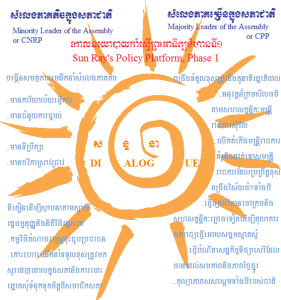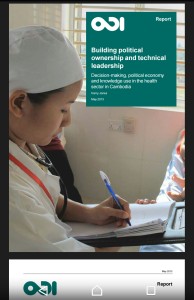What is the CEROC?
This part (57), Mr. Sophan Seng continued to articulate on The CEROC or Commission for Election Rights of Overseas Cambodians for their effort to advocate for the Universal Suffrage or Cambodians overseas absentee voting so that those Cambodians overseas can exercise their right to fully participate with Cambodia politics through election.
Continuing to summarize his speech at the Polikoffee on March 5, 2016, the question on what is the CEROC?, Mr. Sophan ardently picked up the importance group of all Cambodians overseas populations such as Cambodian soldiers stationing at Africa, government officials especially embassy’s staffs, students, migrant workers, and diaspora members, all should be inclusive to access to voting in order to implement full democratic principles of Cambodia.
According to his observing, the amendment of national constitution to clearly state “allowing rights to vote for Cambodians overseas” is imperative. Both major voice and minor voice political parties in the parliament must initiate to create or amend law that allow Cambodians overseas to vote. Pragmatically speaking, Prime Minister Hun Sen must initiate this agenda and work towards achieving it so that younger Cambodian generations can remember his statesmanship in guarding the principles of democracy in this country as well as for the sustainable development of Cambodia.




